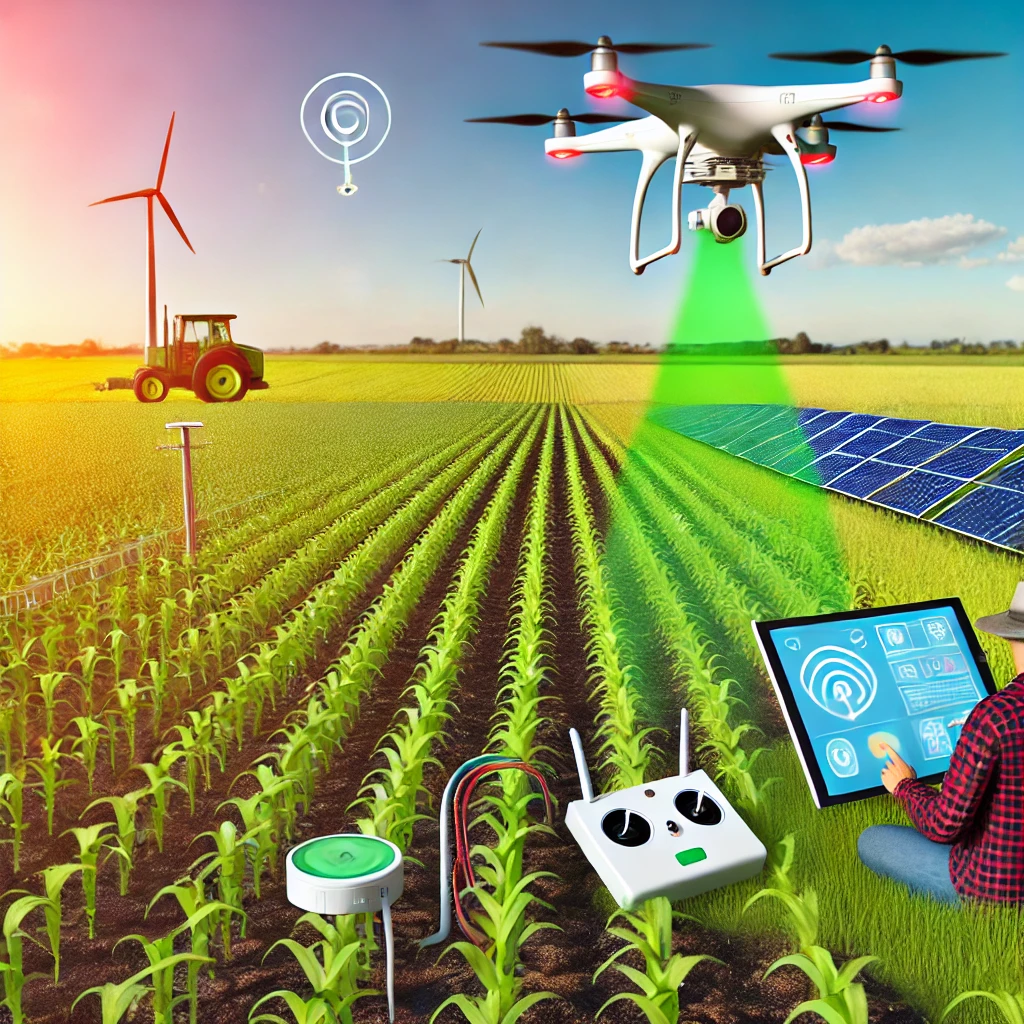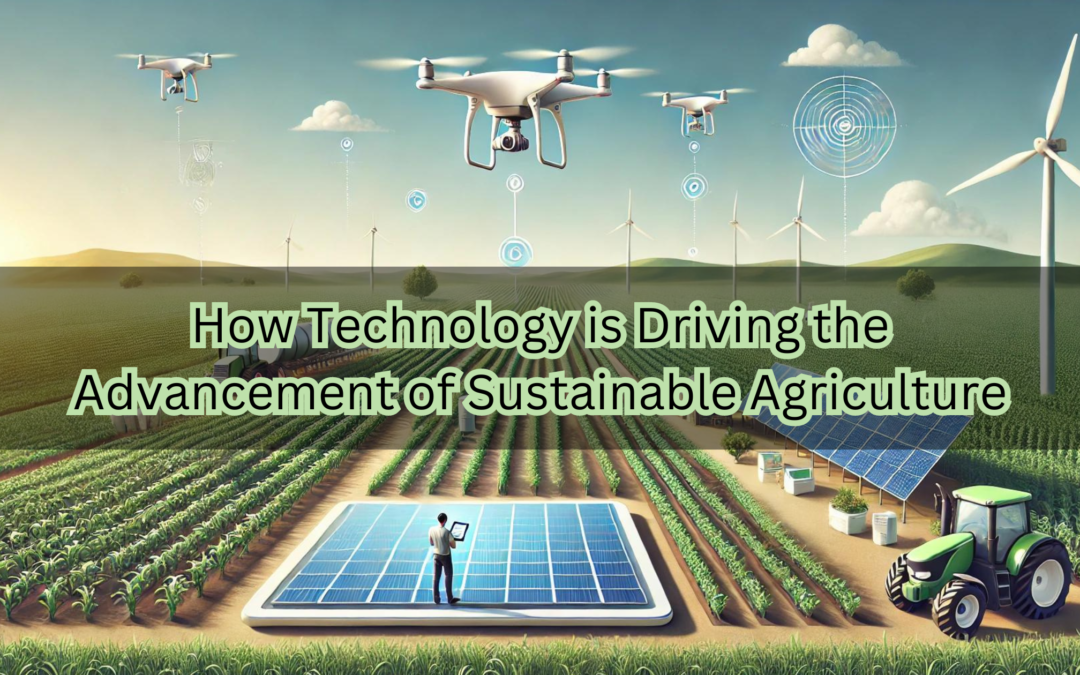The global demand for food is skyrocketing as the population grows, making sustainable agriculture essential for meeting this need without harming the environment. Technology plays a vital role in advancing sustainable agricultural practices by offering innovative solutions that increase crop productivity, conserve resources, and minimize environmental damage. Let’s explore how technology is reshaping sustainable farming practices.
Precision Farming: A Game Changer in Sustainable Agriculture
Precision farming is revolutionizing sustainable agriculture by using technology to optimize farming at the field level. With tools like GPS, sensors, and data analytics, farmers can monitor crop health, weather patterns, and soil conditions in real-time. This allows them to make informed decisions, reducing waste and environmental impact.
For instance, instead of spreading fertilizers evenly across an entire field, precision farming allows farmers to apply the right amount in the right places. This boosts productivity, reduces input costs, and prevents runoff that can harm water sources.
Drones in Sustainable Agriculture: Boosting Efficiency and Reducing Waste
Drones are another cutting-edge tool that is contributing to the advancement of sustainable agriculture. Equipped with advanced imaging and sensors, drones can quickly survey large areas of farmland, offering farmers valuable insights into crop growth and health.
Drones can detect early signs of pests, diseases, or nutrient deficiencies, allowing for targeted interventions. This early detection minimizes crop loss, reduces the need for widespread pesticide use, and helps farmers save money and resources. Additionally, drones can assist in seed planting and applying inputs, further increasing efficiency and cutting labor costs.

GMOs in Sustainable Agriculture: Enhancing Crop Resilience
Genetically Modified Organisms (GMOs) may seem surprising as a tool for sustainable agriculture, but they are making a significant impact. By altering the genetic makeup of crops, scientists are developing varieties that are more resistant to pests, diseases, and extreme weather conditions.
For example, drought-resistant GMO crops can thrive in arid regions, reducing the need for irrigation and conserving water. This not only leads to higher yields but also lowers the need for chemical inputs like fertilizers and pesticides. However, GMOs remain a topic of debate, with concerns about their long-term environmental impact and ethical implications.
Renewable Energy in Agriculture: Powering Sustainable Farming
Renewable energy is a crucial part of sustainable agriculture. Farms that use solar-powered irrigation systems or wind turbines are reducing their reliance on fossil fuels and lowering greenhouse gas emissions.
In addition, the use of bioenergy, generated from agricultural waste, is promoting the circular economy. It reduces waste while providing a sustainable energy source for farming operations. This shift to renewable energy is key to achieving a more sustainable agricultural model.
Overcoming Challenges in Sustainable Agriculture Technology
While these technologies are transforming sustainable agriculture, there are still challenges to be addressed. The high costs of technology and the digital divide can make it difficult for small-scale farmers, especially in developing countries, to adopt these innovations. This could lead to disparities in agricultural productivity and sustainability.
However, the potential of these technologies to meet the growing global food demand while protecting the environment is undeniable. As they continue to evolve, they will help farmers improve efficiency, reduce their environmental footprint, and conserve valuable resources.
Conclusion: Technology’s Role in the Future of Sustainable Agriculture
Technology is playing a crucial role in the advancement of sustainable agriculture. Precision farming, drones, GMOs, and renewable energy are helping farmers increase efficiency, reduce environmental impact, and conserve resources. These technological advancements will continue to shape the future of farming, making it more sustainable and better equipped to feed a growing global population.
To learn more about how technology can support sustainable agriculture, visit the EAT Community for valuable insights and resources.
Related Articles and Resources:
- How Technology is Revolutionizing Environmental Sustainability
- Empowering the Future: How Renewable Energy Storage is Revolutionizing Sustainable Power Grids
- Exploring Cutting-Edge Drone Engineering Techniques
- Genetically modified organisms – GMOs
- How Regenerative Agriculture Contributes to Sustainable Food Systems
- The Future of Farming


Recent Comments